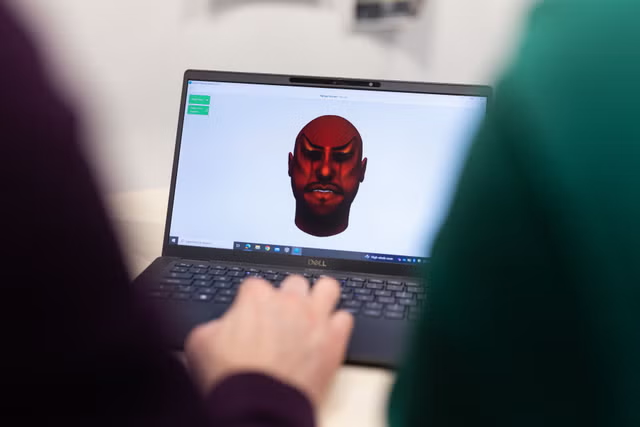Kissing in the rain might be a standard scene in a romcom, but when you think about it, locking lips is quite a strange thing for us humans to do.
In a paper in the journal Evolutionary Anthropology, one scientist delves into why kissing might have evolved in humans and become the symbol of love and affection it is today.
According to the paper, kissing could have originated from a form of grooming behavior among our ancestors.
"Why the protruding of the lips and slight suction when touching another? Capuchin monkeys stick their fingers in their friends' eyes as sign of affection, why have humans developed kissing?" Adriano R. Lameira, a researcher at the U.K.'s University of Warwick, wrote in the paper.
Lameira discussed several theories of how kissing evolved, including the ideas that it originated from a form of "sniffing," from baby nursing, or from a mother passing pre-chewed food to her infants.
"However, these hypotheses struggle to explain the context and function of kissing. Kissing does not have an alimentary purpose, nor it happens only by or to infants," Lameira wrote.
A kissing-like behavior has been observed in great apes, usually in the aftermath of a conflict when two apes are attempting to make up.
"Mouth–mouth contact in great apes is rare, occurring fundamentally as a behavior of postconflict reconciliation and consolation, often followed by grooming," Lameira wrote. "These moments of snout-to-snout touch are coined "kissing" as shorthand, in large part due to the quick likeness of the behavior to one that human observers readily recognize for themselves."
Additionally, during grooming—a primary form of social bonding—apes tend to touch their mouths to their groomed companion as a final step, usually to remove a piece of dirt or parasite from their fur.
Lameida put forward a theory dubbed the "groomer's final kiss hypothesis," which suggested that kissing in humans is a vestigial form of this grooming mouth contact.
As humans lost their fur, the duration and necessity of grooming decreased. However, this final act of grooming—pressing lips and performing a light suction—may have persisted as a social gesture, which eventually evolved into kissing.
"Great ape social behavior suggests that kissing is likely the conserved final mouth-contact stage of a grooming bout when the groomer sucks with protruded lips the fur or skin of the groomed to latch on debris or a parasite," Lameira wrote.
"Groomer's final kiss shows protruding lips and suction movement, is performed between various individuals of a community (e.g., not just by or to babies or sexual partners), and among them, those with closer social ties and/or kinship."
This theory is by no means proven, but does tick many boxes that previous hypotheses of the origins of kissing have not been able to.
"A potential means to start gathering support for this hypothesis could involve comparing grooming behavior between populations exhibiting different coat thickness," Lameira suggested.
Do you have a tip on a science story that Newsweek should be covering? Do you have a question about kissing? Let us know via science@newsweek.com.
References
Lameira, A. R. (2024). The evolutionary origin of human kissing. Evolutionary Anthropology. https://doi.org/10.1002/evan.22050
Disclaimer: The copyright of this article belongs to the original author. Reposting this article is solely for the purpose of information dissemination and does not constitute any investment advice. If there is any infringement, please contact us immediately. We will make corrections or deletions as necessary. Thank you.



